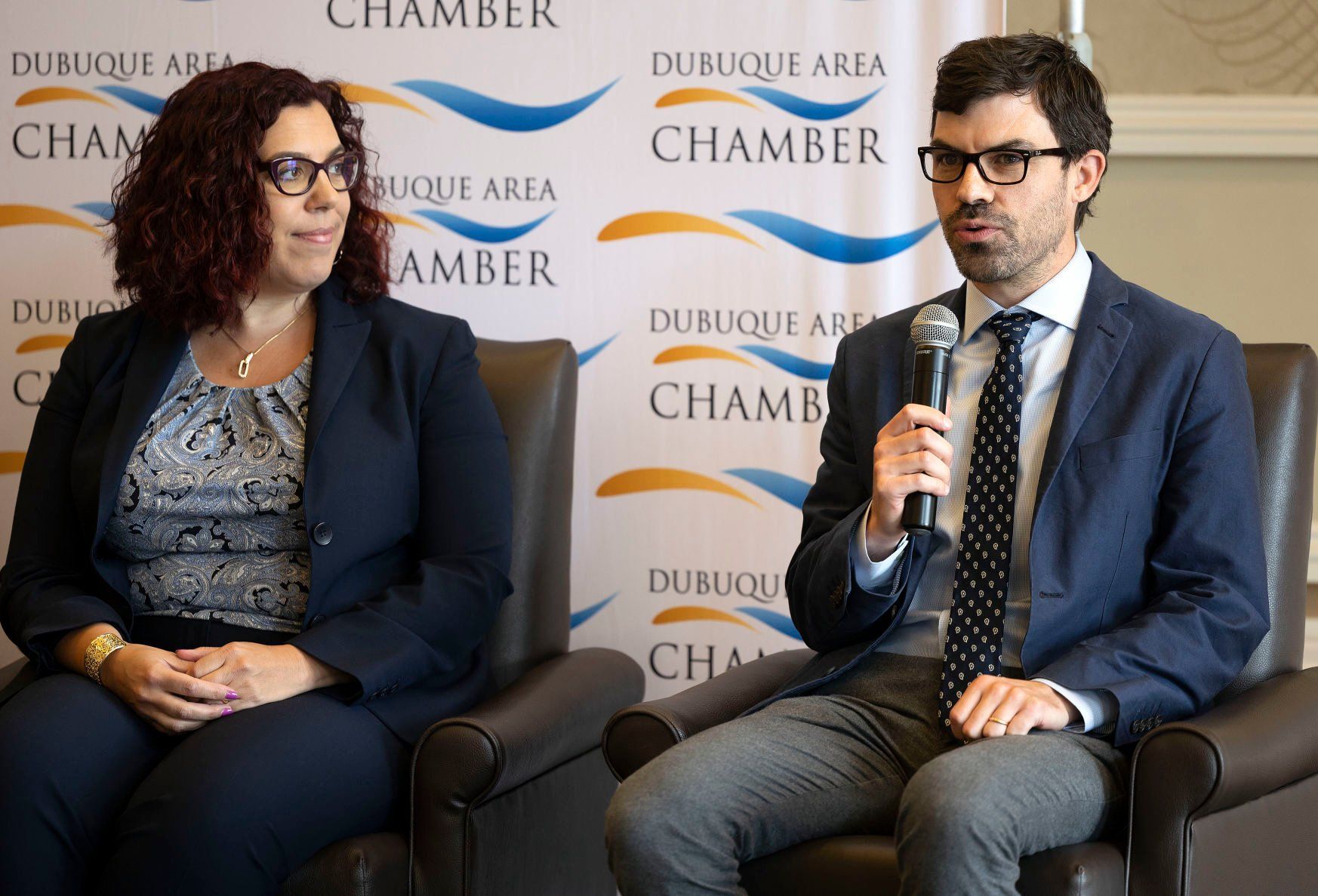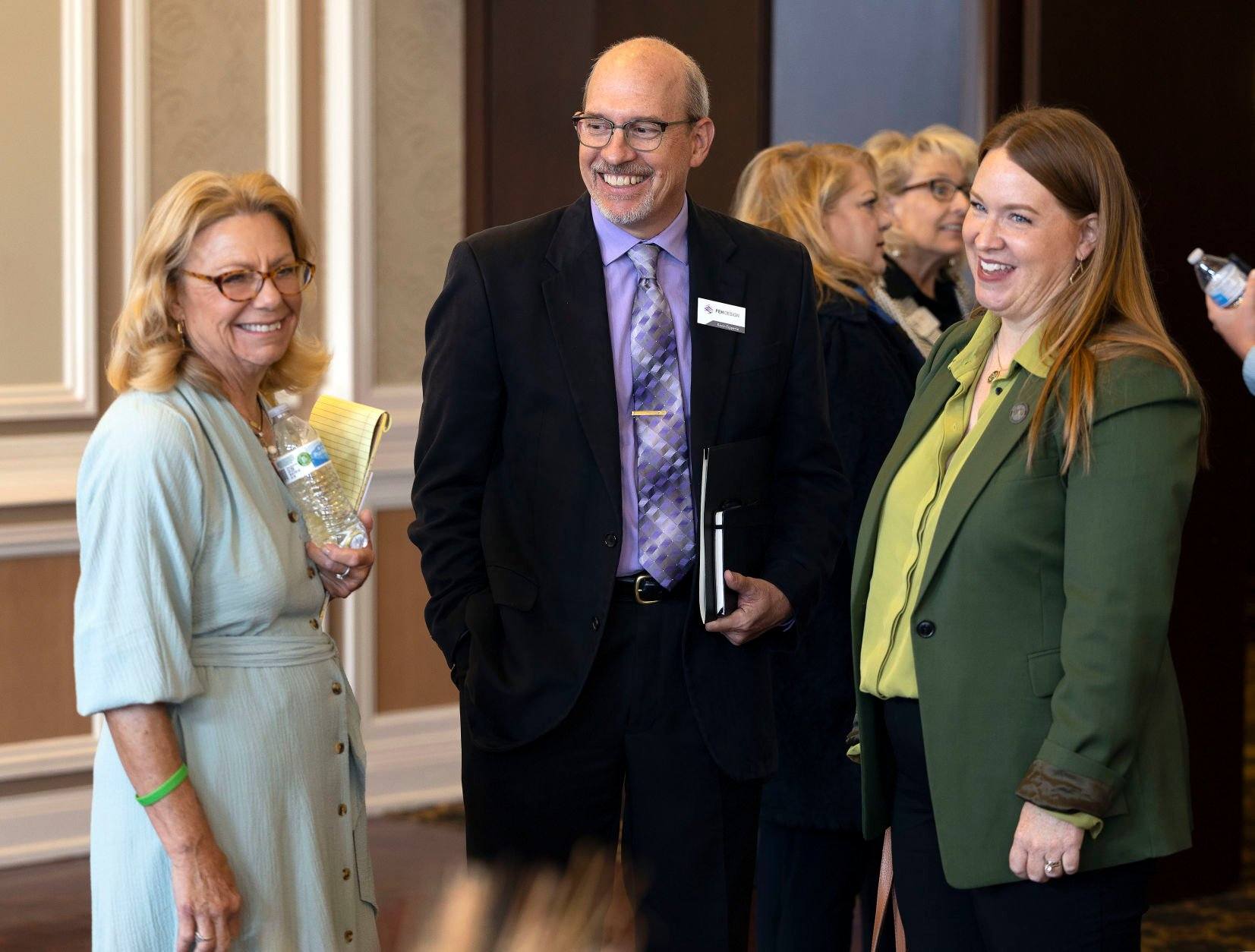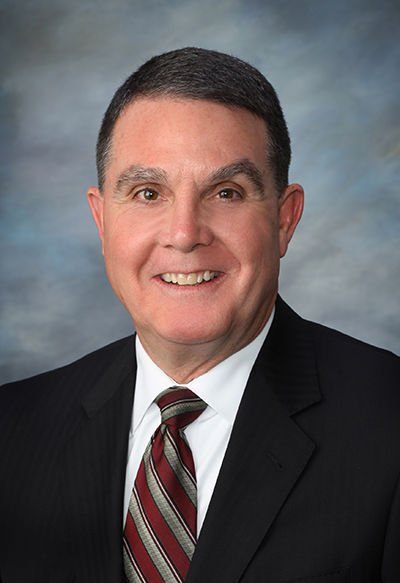Business leaders from numerous sectors gathered in Dubuque on Wednesday to discuss challenges, successes and the government policies that have contributed to both.
At Dubuque Area Chamber of Commerce’s inaugural Legislative Conference at the Hotel Julien Dubuque, workforce problems took center stage. But the successes highlighted and solutions proposed provided more of a silver lining than the national political discourse has provided recently.
“No matter who you’re talking to — what employer or what sector — that workforce is absolutely the No. 1 issue,” said chamber President and CEO Molly Grover. “That’s not just true here in Dubuque. It’s true in Iowa and true across the United States.”
Allison Dembeck, vice president of government affairs for U.S. Chamber of Commerce, agreed and said many factors are contributing to workforce problems.
“Child care is one of them. Barriers to employment is another area we’re focusing on,” she said. “Another aspect is second-chance hiring issues and focusing on some of the barriers to occupational licensing.”
Iowa Chamber Alliance Executive Director Dustin Miller said attracting talent to combat workforce woes has been its top legislative priority since before the COVID-19 pandemic began.
“It’s really priority one through five,” he said. “But (finding solutions) is complicated. It’s finding appropriate second chances. It’s finding safe and affordable child care so a mom and dad can re-integrate into the workforce. It’s being welcoming to people out of the state or the country and providing scaffolding for people who do come to your state, whether that’s (English as a second language resources) or housing.”
Miller said the way the Legislature changed its tune on child care is telling.
“A few years ago, it was seen as a social service issue,” he said. “Now, it’s the message from the U.S. Chamber, from us, from Molly. People are now getting the fact that this is a workforce issue.”
Iowa Sen. Carrie Koelker, R-Dyersville, sat on the event’s Restaurant and Hospitality panel, as she is also executive director for Eastern Iowa Tourism. She said Iowa’s population stagnation has contributed a great deal to the workforce issues.
“We’re all going to the same trough,” she said. “Our employees are hopping across the street because they’re getting paid 50 cents more or whatever it is.”
Jessica Dunker, executive director of Iowa Restaurant Association, said workforce problems have created new competition between sectors.
“Our industry never used to compare with health care for workers,” she said. “We never used to compete with day care for teenage workers.”
Scott DeSousa, president of Friedman Group/Assured Partners, said on the Finance, Insurance and Law panel that the wrong place to look for workers is the unemployment lists.
“There’s this misnomer that there are all of these people on unemployment,” he said. “There just aren’t.”
He said some area employers have benefited greatly from federal legal immigration programs and that those should be expanded.
“We have several manufacturers in the tri-state area using this, and it’s going great,” he said.
Several sectors reported turning to technological advancements to stretch the workforce they have.
“Large manufacturing is still investing,” said Len DeVaisher, president and CEO of MidWestOne. “They’re investing in technology because of the workforce issues.”
Dunker said the same of the restaurant industry.
“We see the industry moving toward lots of technology and customers getting used to that, especially the limited service model,” she said.
For example, restaurants are turning to the point-of-sale system offered by software company Toast, which had local representatives at the event.
“There hasn’t been a lot of innovation in the restaurant industry in 20 or 30 years,” said Austin Otting, who recently returned to Peosta, Iowa, after 10 years away as a remote employee for Toast.
Other industries seem hopeful regarding new programs.
Dunker lauded Iowa laws that regulate third-party food delivery apps. Jack Greacen, of National Association of Realtors, praised the Housing Supply and Affordability Act, which tied the Community Block Grant program to accessing certain housing loans to create population density and move away from urban sprawl and mostly single-family housing.
Business leaders promised to keep pressing lawmakers for more measures to combat the workforce drought.







